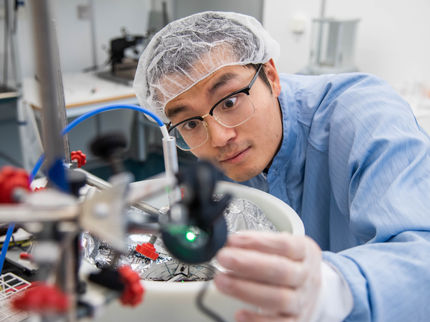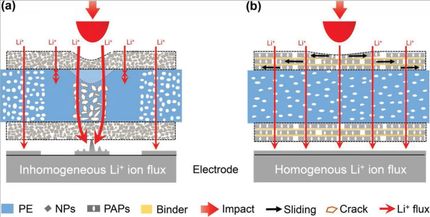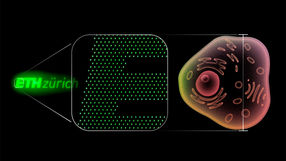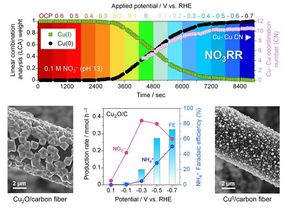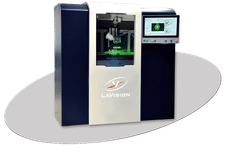UGA researchers achieve breakthrough in effort to develop tiny biological fuel cells
Advertisement
University of Georgia researchers have developed a successful way to grow molecular wire brushes that conduct electrical charges, a first step in developing biological fuel cells that could power pacemakers, cochlear implants and prosthetic limbs. The journal Chemical Science calls the technique "a significant breakthrough for nanotechnology."
UGA chemist Jason Locklin and graduate students Nicholas Marshall and Kyle Sontag grew polymer brushes, made up of chains of thiophene and benzene, aromatic molecules sometimes used as solvents, attached to metal surfaces as ultra-thin films.
"The molecular wires are actually polymer chains that have been grown from a metal surface at very high density," said Locklin, who has a joint appointment in UGA's Franklin College of Arts and Science and on the Faculty of Engineering. "The structure of the film resembles a toothbrush, where the chains of conjugated polymers are like the bristles. We call these types of coatings polymer brushes. To get chains to pack tightly in extended conformations, they must be grown from the surface, a method we call the 'grafting from' approach."
Using this approach, the scientists laid down a single layer of thiophene as the film's initial coating, then built up chains of thiophene or benzene using a controlled polymerization technique. Their research, funded by the Petroleum Research Foundation, was published in the June issue of the journal, Chemical Communications.
"The beauty of organic semiconductors is how their properties change, based on size and the number of repeating units," said Locklin, who is a member of UGA's Nanoscale Science and Engineering Center. Thiophene itself is an insulator, said Locklin, "but by linking many thiophene molecules together in a controlled fashion, the polymers have conducting properties."
More importantly, he said, "this technique gives us the control to systematically vary polymer architecture, opening up the possibility for various uses in electronic devices such as sensors, transistors and diodes." The ultra-thin films are between 5 and 50 nanometers - too small to see, even under a high-powered optical microscope.
Locklin said it's difficult to harness a fuel source in the body, such as glucose, for use in biofuel cells that could replace the need for batteries in an implanted device. And while humans have enzymes in the body that do a good job of converting chemical energy into electrical energy, "they aren't very useful in this application because they have natural protective insulating layers that prevent good electron transport from active site to electrode," he said. "Hopefully our molecular wires will provide a better conduit for charges to flow."
While "flexible electronics" is a large and growing area of research, it's still in its infancy, Locklin said. "For example, we don't yet understand all of the fundamental physics involved in how electrical charges move through organic materials."
The next step for Locklin is to develop appropriate applications. For example, his polymer brush technique might be used in a range of devices that interface with living tissue, such as biochemical sensors, prosthetic limbs, pacemakers or bionic ears. "The film itself might be used in transistors - or in photovoltaic devices such as solar cells," said Locklin.



